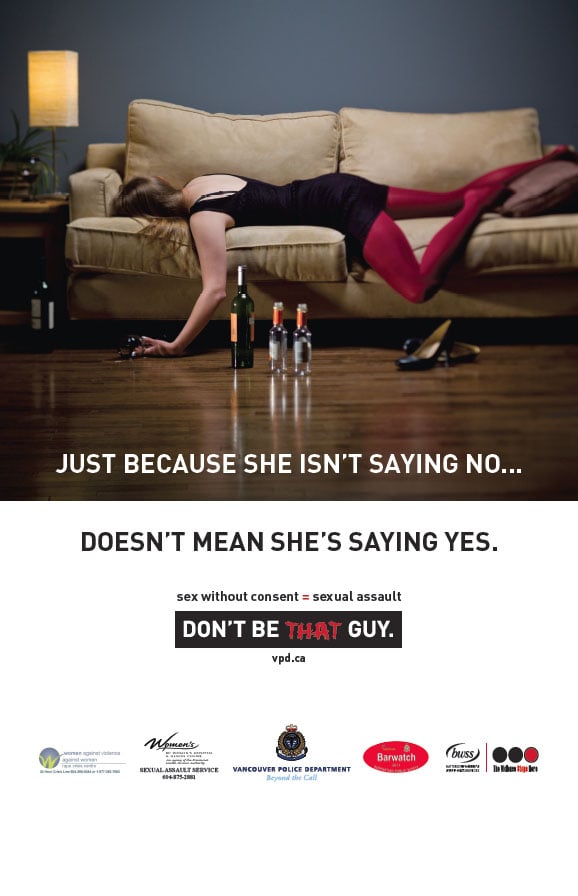
Talking to men about the nuances of consent and spelling out what does and doesn’t constitute rape is not condescending at all, says Nina Funnell. It’s essential.
Trigger warning: This post deals with rape. It may be triggering for some readers.
Imagine if the next time a woman was raped you turned on the news and heard this:
“Police are urging men to be considerate and respectful when gaining consent to have sex, after another man was found guilty of raping a woman.”
And imagine if instead of imploring women not to travel alone or drink alcohol, the police issued statements reminding men that it is a crime to have sex with anyone who is incapacitated by drugs or alcohol.
What would the world look like if police directed rape prevention advice to men, instead of women? And would rates of sexual assault ever drop if safety campaigns attempted to engage potential perpetrators, rather than just potential victims?
Well, in Canada that question has already been asked and answered. And it turns out that public messaging which is aimed at men, and which urges them not to rape women, can lead to a small but significant reduction in sexual assault rates.
The Canadian Campaign
Unlike Australian campaigns (which typically call on women to micromanage their own behaviour in the hopes of forward-managing the behaviour of a small minority of men), our Canadian cousins have taken the novel approach of appealing directly to men via a campaign titled ‘Don’t be that guy.’

Top Comments
I am from Canada and while this campaign is reducing the number of rapes i feel we should be examining why it is. In my opinion it is because, as parents we are not teaching our children, boys and girls, what rape is. That is why some young men think that just because a girl doesnt say no they think she said yes. If we begin teaching our children from a young age that consent has to be explicit it will pervade our culture and become the norm.
A young man from my area had sex with his drunken girlfriend. They had been dating for several months and had been intimate before. She didnt say no but tried to "laughingly" push him away. He insisted and had sex with her. He was charged with sexual assault the next day. Now if you look at it from his point of view (bring on the haters) they had been intimate before, she was laughing seemingly enjoying herself, and there was no expression of fear or outright refusal. He assumed when she stopped resisting that she consented. When he went to trial he confessed that he misread her signals. The victim in this case confirmed all of which i said. She admitted he was not vìolent , he did not hold her down, he just persisted til she gave up and just took it.
He said he didnt understand that it was assault. He just figured he was having sex with his girlfriend. Something they had done consensually several times before. It doesnt make it right. Its just what he was thinking.
The point is if we teach our sons and daughters what rape is, In all its forms we will further reduce rapes. If we teach them that if resistance is met to back off immediately. If a girl is passed out or otherwise incapacitated there is no consent, its rape period. If we teach girls they have the right to say no and defend themselves, instead of being afraid of looking stupid prudish. And if we teach boys that ANY form of resistance, verbal or physical is a sign to stop immediately then and only then will we see a greater impact on society as a whole and stop victim blaming.
Fantastic campaign. We need this in Australia NOW!